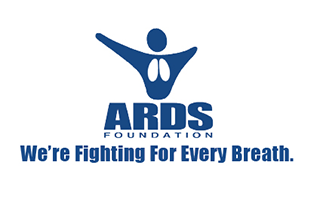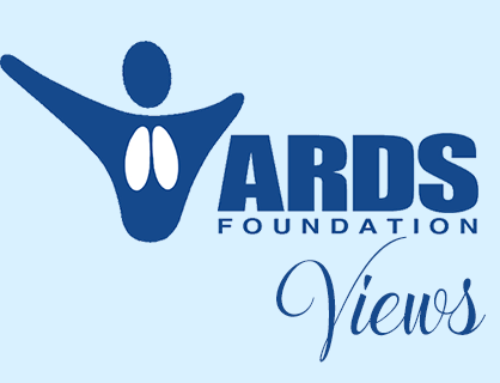by Eileen Zacharias
Just this week, it happened again… Another family, with a loved one in ARDS crisis who was told that there was no hope and they needed to make that decision regarding life support termination…
At the ARDS Foundation, we have come to term this very serious topic as the “Dreaded Family Meeting” and there have been many emails and message board discussions by the families of those in ARDS crisis regarding how to handle the issue, when approached by staff at the hospital to discuss this issue. Sometimes families tell me that they feel as though they are “ambushed” and they describe it as such because often the pretense of the meeting is to discuss the current course of treatment, but the meeting quickly disintegrates into a conversation solely discussing termination of life support and quality of life issues. Usually, the family feels broad sided, having no idea that this discussion was coming…or that it was coming so soon. Perhaps there are those who believe that the family is in denial but where half of those who survive ARDS and once were expected to die, too, it is not a wholly unreasonable.
Since volunteers at the ARDS Foundation are not medical professionals, we only approach the issue from one of a personal perspective; we urge families always to gather as much information as possible and we offer our own individual perspective based upon what happened when we were ill with ARDS. Not medical, but personal.
And, as I said, it happened again, just last week…. On February 12, 2003, a family who had been corresponding with me wrote me to ask about this issue of removal of life support and these very serious questions. They were told by the doctors that their loved one had stopped responding to the EEG and indicated she was brain dead; the physicians followed up with an MRI and they were already discussing organ transplant options with this woman’s family.
After this email, on February 12, 2003, I did not hear from the family for more than two weeks, and assumed that this woman had passed away after being removed from the ventilator; then, in early March, I received an email with shocking news: their loved one was now awake and smiling, nodding, reading lips and beginning weaning from the vent. She would be transferred to a rehab facility soon.
This is not the first time that we at the ARDS Foundation have heard a story such as this. Nor is this the first time that families have been told that their loved ones would likely suffer brain damage if they lived. I am one such patient who had that prediction during my “dreaded family meeting.” It is for this reason that at the ARDS Foundation, we believe strongly in offering hope.
We feel a bit odd when people write to us on these subjects, knowing that when they return to the hospital, they might be looked at with skepticism, even cynicism. We admit that we are not working off of science or medical expertise; all we have to go on story after story of those who have survived their ARDS, despite daunting odds. And every ARDS survivor will tell a strikingly similar story: that there doctor said that they were extremely close to death, maybe several times, but somehow they survived and now their doctor calls them their miracle patient.
We try to tell families something else: That while every ARDS case is critical, somehow, half of us manage to survive. Is that because of prayer, family dedication, patient will power, hope, support, or just plain miracles…we don’t know? It is very important to ask many questions, to get as much information as possible, and to know as much as you possible can about acute respiratory distress syndrome before making any irrevocable medical decisions. Without offering false hope, it is our goal to offer a realistic view of what others who have dealt with ARDS have experienced, be they survivors or those who have lost a loved one to ARDS. To be sure, there are those at our foundation with a perspective on both sides of this important issue and to that end, a dialogue was opened up on our message board so that others, when faced with this issue, could see what others had to say:
While we know that unfortunately half of those who get ARDS will not survive, we also know that the half that do, are not expected to survive either. If they have the support, the hope, the prayers, along with information about ARDS, to give them and their families hope that a miracle might just happen, then maybe, just maybe, they will end up on the right side of the percentages.
Perhaps, this is an issue that should be open to discussion among those in the medical community. I, for one, not being an especially spiritual person prior to my ARDS episode, have to take into account that there must have been something that played a role in my survival, my recovery, perhaps beyond medicine when my own physicians had told my family that they were certain after two weeks, chances were so slim I would survive, that they had my family meeting to discuss removing me from the vent, at thirty-three years old, a quality of life issue, they said. I do not doubt how critically ill I was, as my pulmonologist told me I almost died on five separate occasions, being his sickest ARDS patient, and my neurologist told me that I am the sickest patient who he has had who has lived. But I did live, and I am fine, with very little post ARDS medical concerns.
After hearing from so many who have endured these meetings, perhaps this very difficult issue needs to be discussed. In the end, no one wants their loved one to suffer needlessly if the end result would still be sever brain damage or death, but no one wants to give up hope in light of the many who have lived. What are your thoughts on this weighty issue?




